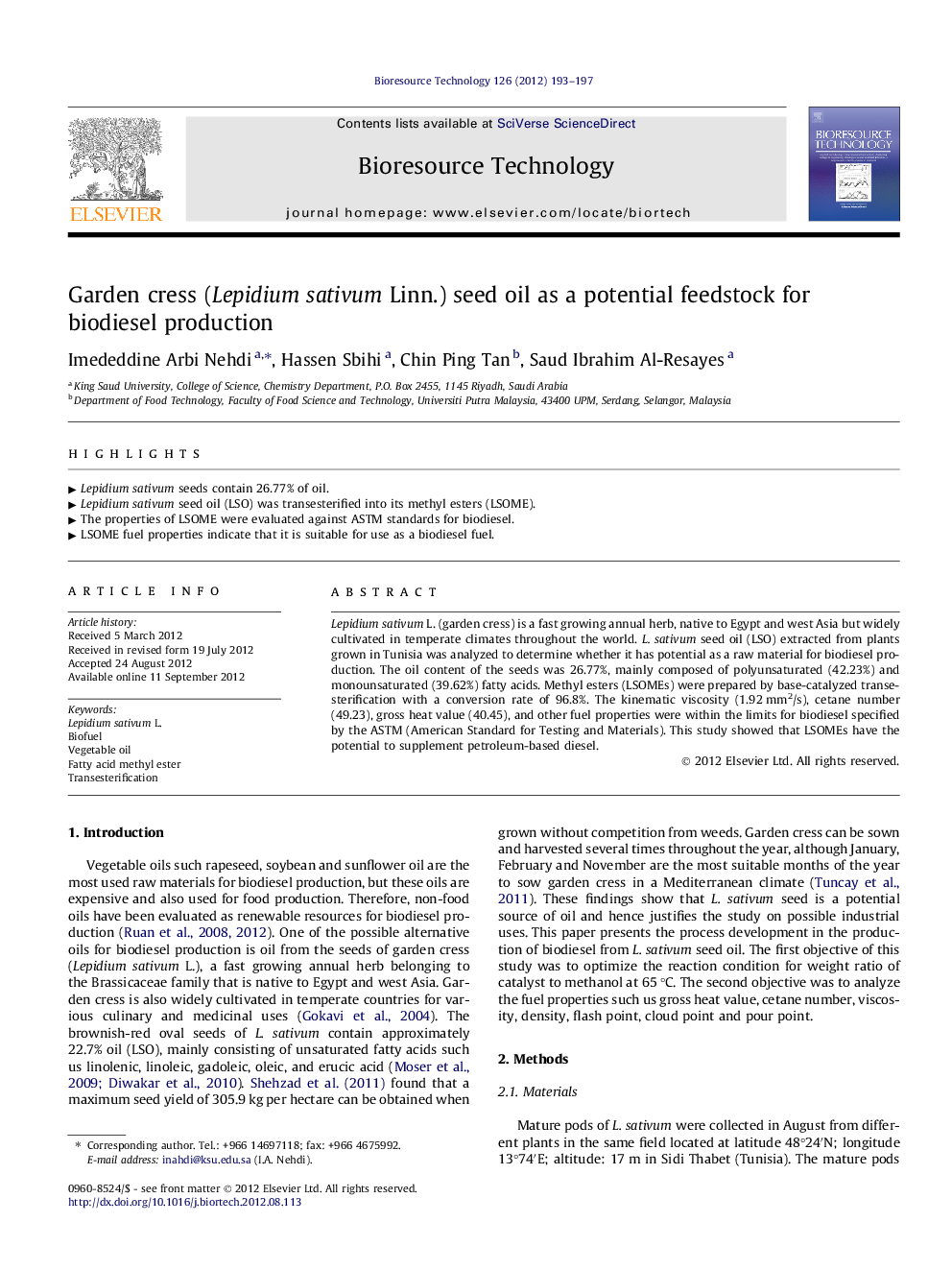| Article ID | Journal | Published Year | Pages | File Type |
|---|---|---|---|---|
| 681258 | Bioresource Technology | 2012 | 5 Pages |
Lepidium sativum L. (garden cress) is a fast growing annual herb, native to Egypt and west Asia but widely cultivated in temperate climates throughout the world. L. sativum seed oil (LSO) extracted from plants grown in Tunisia was analyzed to determine whether it has potential as a raw material for biodiesel production. The oil content of the seeds was 26.77%, mainly composed of polyunsaturated (42.23%) and monounsaturated (39.62%) fatty acids. Methyl esters (LSOMEs) were prepared by base-catalyzed transesterification with a conversion rate of 96.8%. The kinematic viscosity (1.92 mm2/s), cetane number (49.23), gross heat value (40.45), and other fuel properties were within the limits for biodiesel specified by the ASTM (American Standard for Testing and Materials). This study showed that LSOMEs have the potential to supplement petroleum-based diesel.
► Lepidium sativum seeds contain 26.77% of oil. ► Lepidium sativum seed oil (LSO) was transesterified into its methyl esters (LSOME). ► The properties of LSOME were evaluated against ASTM standards for biodiesel. ► LSOME fuel properties indicate that it is suitable for use as a biodiesel fuel.
